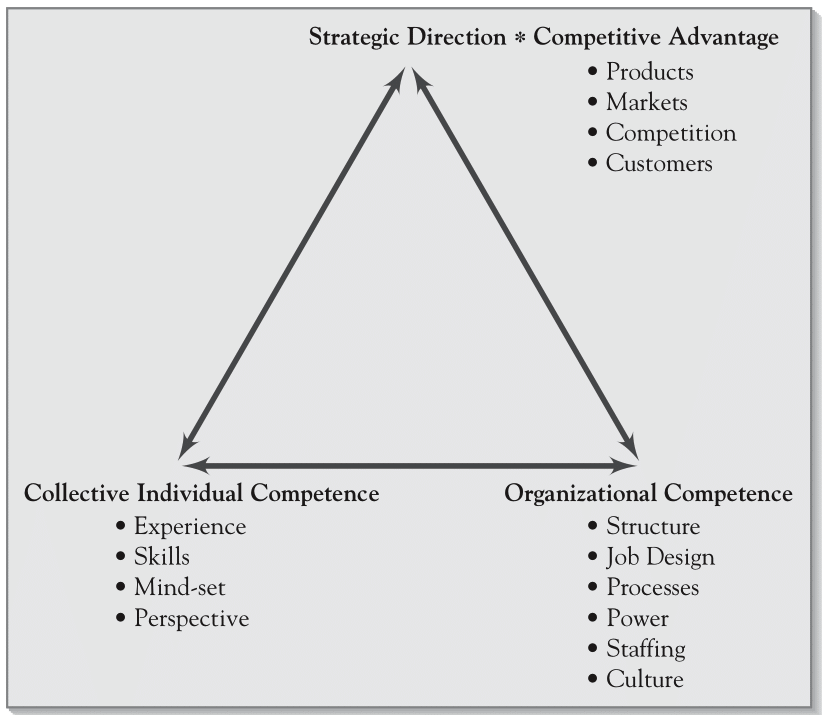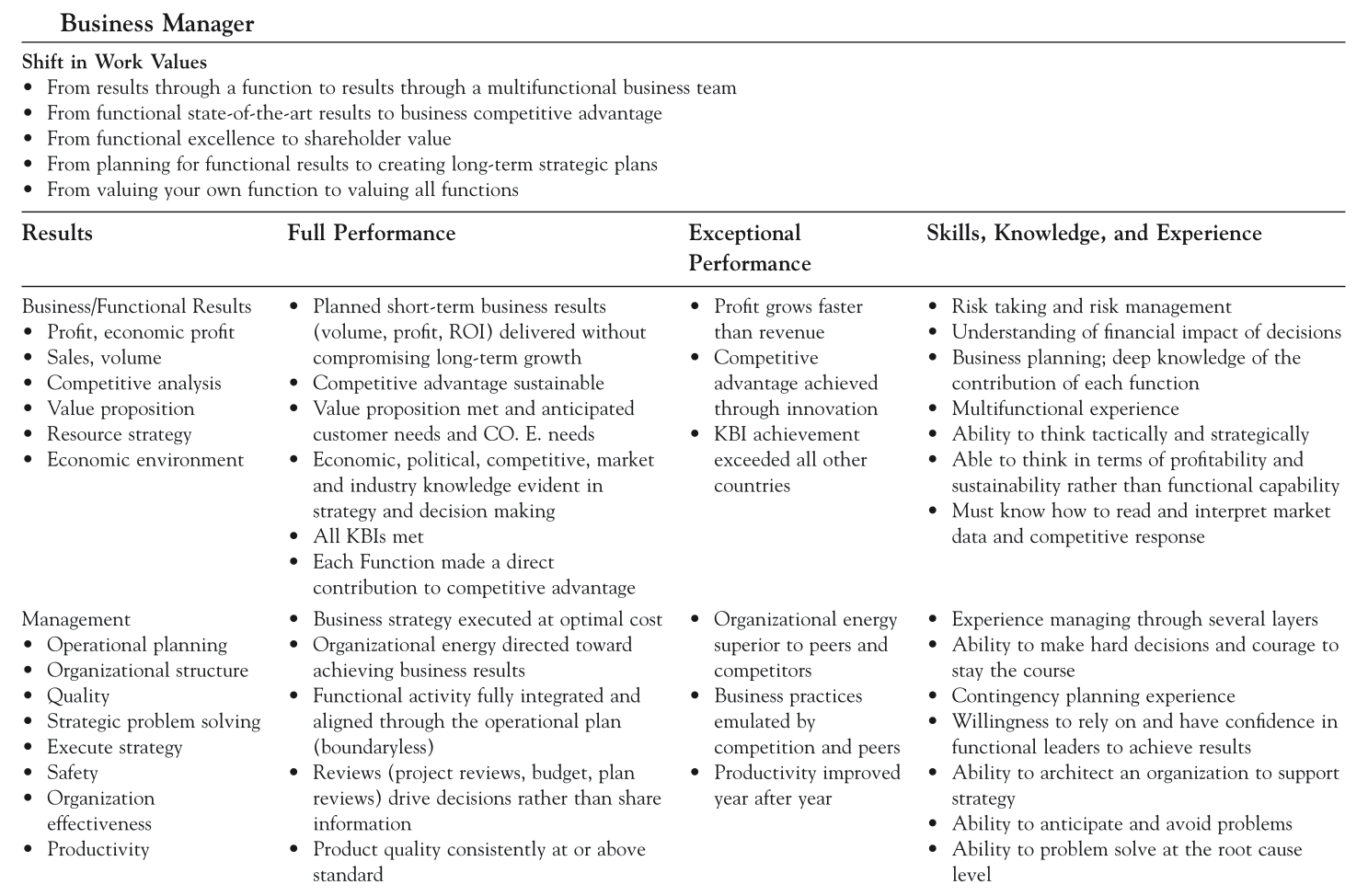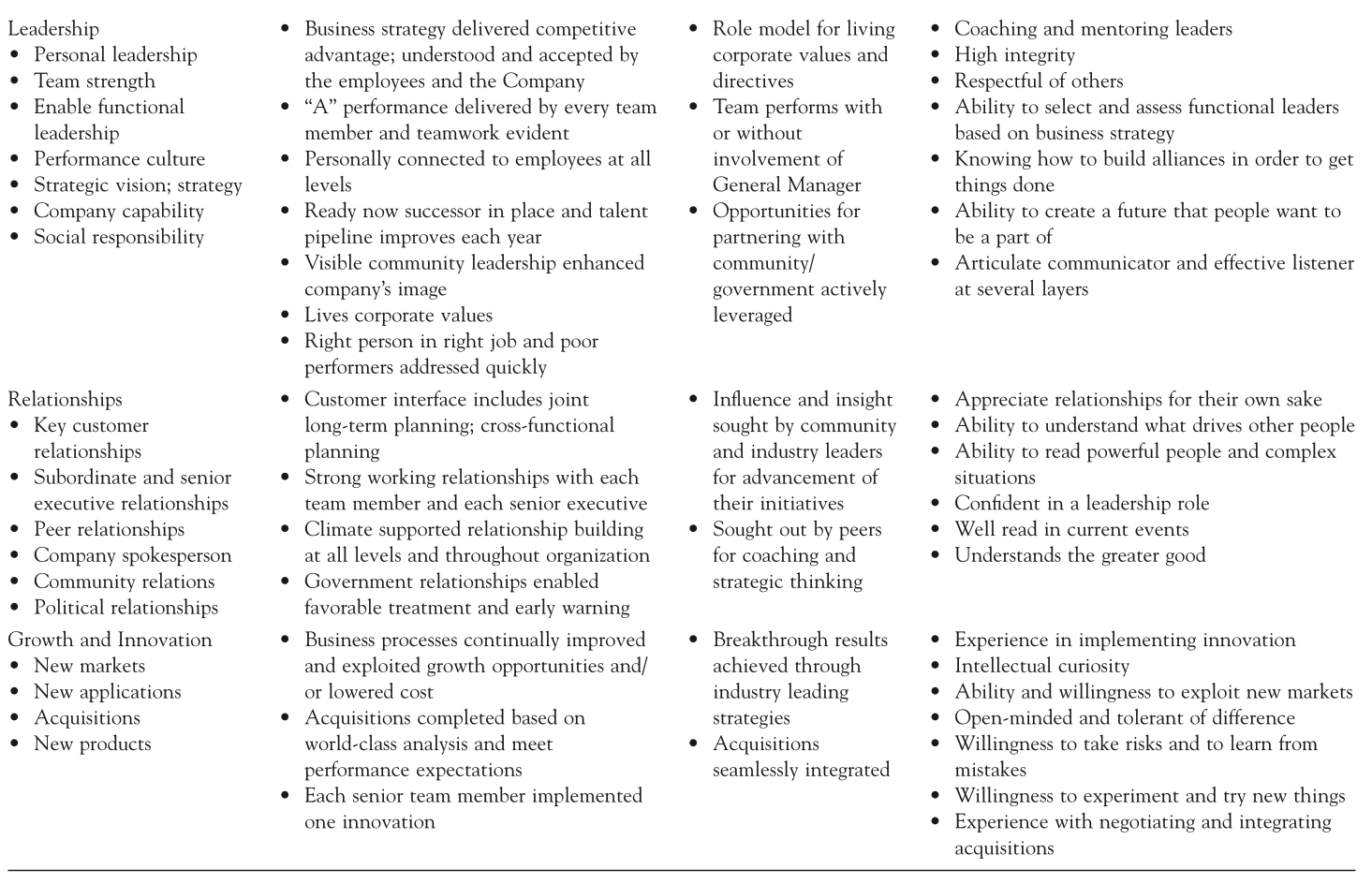Business Manager. Profit–Make sure the business is profitable now and in the future.
Business managers operate within the group strategic framework, establish and approve the long-term business strategies, and build contingencies.
Business managers must make decisions under pressure and have increased autonomy in decision-making. The transition from functional to business manager is significant as the focus shifts from managing to leading. Indeed, the business manager must control and inspire multiple teams and connect with subordinates emotionally.
Furthermore, the business manager must analyze past, current, and future performance to maintain efficient operations under financial and other constraints.
For some individuals, there can be friction at this point. Business managers must trust and receive advice or feedback from functional managers–especially when they have little knowledge of the function in question.
The Big Picture
Strategic alignment is the overarching result that business managers must produce.
All sides of this triangle must align for a business to sustain a competitive advantage. When any major change is made in one element, work must be done to balance other elements into a new alignment.
Level 6 Emotional Maturity Expectations
Attribute | Responsibility/Accountability |
|---|---|
Autonomy | Has defined authority and accountability for actions and decisions within a significant area of work, including technical, financial and quality aspects. Establishes organisational objectives and assigns responsibilities. |
Influence | Influences policy and strategy formation. Initiates influential relationships with internal and external customers, suppliers and partners at senior management level, including industry leaders. Leads on collaboration with a diverse range of stakeholders across competing objectives within the organisation. Makes decisions which impact the achievement of organisational objectives and financial performance. |
Complexity | Contributes to the development and implementation of policy and strategy. Performs highly complex work activities covering technical, financial and quality aspects. Has deep expertise in own specialism(s) and an understanding of its impact on the broader business and wider customer/organisation. |
Business skills |
|
Knowledge | Has developed business knowledge of the activities and practices of own organisation and those of suppliers, partners, competitors and clients. Promotes the application of generic and specific bodies of knowledge in own organisation. Develops executive leadership skills and broadens and deepens their industry or business knowledge. |


